Latest news
02 February 2024
NWO grant for Human-Centred AI for crowd crisis response
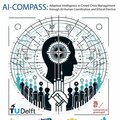
AI has the potential to support crowd crises decisions, yet the increasing use of AI has led to a debate about the legal and ethical implications. To address these challenges, the AI-COMPASS consortium, led by TU Delft, develops real-time decision support systems, considering context, behaviour, and values. The project is financed by the Collaboration between Humans and (semi-)Autonomous systems programme of NWO.
22 January 2024
Students crafting flood resilience during hackathon
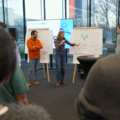
During the 182nd Dies Natalis of TU Delft, we delved into the theme of "Redesigning Deltas" to underline that we need rethink our approach to keep deltas around the world safe and liveable in the future. As part of the preceding Delta week, we organised a hackathon. On 9 January, students joined forces and took up the challenge: Crafting flood resilience in the Rotterdam region.
09 January 2024
Old times revived for climate adaptation
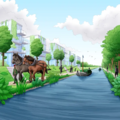
Extreme rainfall events are becoming more extreme and periods of drought are becoming more frequent. To keep the Dutch delta liveable, adaptations will be needed, such as extra water buffers. The Netherlands has a long history of struggle against water, but also makes eager use of it. What can we learn from our heritage? Erik Mostert, lecturer and researcher Water Management at TU Delft, developed several strategies for the province of South Holland to be more resilient to climate change. Inspiration for this came from Dutch heritage: tow barge canals.
09 January 2024
Student 'Quick Reaction' Team erected for field measurements in extreme weather events
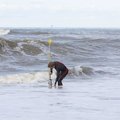
08 January 2024
Unique permanent coastal observation detects minimal changes
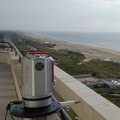
A team of researchers from TU Delft has succeeded in long-term mapping of beach topography to within a few centimetres. The unique dataset provides insights into coastal changes for every hour, for three years. This data is important for dune maintenance and to keep the hinterland well protected. The methodology is also being used to monitor other coastlines and even glaciers. The data are open source and published in Nature, and the new methodology was also recently published.
14 December 2023
Stefan Aarninkhof appointed as dean of CEG

TU Delft’s Executive Board has appointed Professor Stefan Aarninkhof to the position of Dean of the Faculty of Civil Engineering and Geosciences (CEG) with effect from 1 January 2024.
12 December 2023
New research into the dynamics of the deep subsurface under the influence of human interventions
